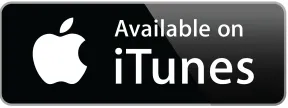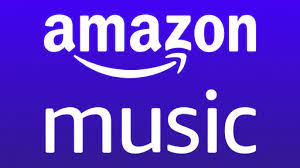
Our guest on the show today is Matt Bailey, Founder & CEO of GameOn. Matt’s company has had quite an unconventional journey – from a B2C free-to-play prediction app that grew to 30k active users to a B2B game technology company listed on the Canadian stock market.
In this episode, Matt talks about how his company was brought to the brink due to Covid, and how because of that, they decided to execute an unlikely pivot. He shares his experience of getting clients from across industries, including reality TV, sports and streaming, and how predictive games can apply to any industry across the world.
Matt also shares a few insights into the world of NFTs, and how he sees them being a critical part of the future.
Overall, a fascinating and insightful episode, and one that shows what unlikely doors can open up for mobile app businesses.
**
Note: We’re excited to announce that we’ve had two BIG launches last week!
1. The Mobile Growth Handbook 2022 is packed with incredible insights along with tried and tested strategies, this book is the perfect tool to learn from and hone your growth plans for this year. We feature hand-selected insights from the smartest mobile growth marketers.
We have over 100 pages of insights that can be accessed at all times (as soon as you sign up). Download the book now and get a head start on your growth strategies.
Download the book now and get a head start on your growth strategies. https://mobileuseracquisitionshow.com/mobile-growth-handbook-2022/
2. The Mobile Growth Slack: A community that was a part of our workshop series – The Mobile Growth Lab, is now open to the general public. Join over 150 mobile marketers to discuss challenges and share your expertise. More details are available here: https://mobileuseracquisitionshow.com/slack/
If you’re ready to join the growing community, fill this form: https://forms.gle/cRCYM4gT1tdXgg6u5



ABOUT MATT: LinkedIn | GameOn
ABOUT ROCKETSHIP HQ: Website | LinkedIn | Twitter | YouTube
KEY HIGHLIGHTS
💲 How betting on a relatively less mature market can lead to success
😷 The repercussions of Covid
🤝 Always be open to taking on clients from outside your industry
📊 The kind of data a prediction game really needs
🤼♂️ What the competition is like in your category
🤔 Can prediction games apply to any industry
🏆 How status and recognition is just as important as rewards
🎨 How a game tech company works with NFTs
💰 Unlocking capital by going public
🙍 The challenges of heading a public company
KEY QUOTES
The fallout of COVID on a game tech startup
COVID hit and there were no sports! We kind of fell off the edge of the universe there. Our monthly active users went down to almost zero, and the little revenue we were generating also went to zero. We didn’t have much money in the bank. I hadn’t paid myself personally for a year, and was living off credit cards at that time. We needed to generate revenue quickly, both for the company and for the wellbeing of myself running a company with little money in the bank.
Prediction games – Bringing out the superfan in people
Before the sport, the episode or the event, fans make predictions on what they think will happen. Then during the event, they go up and down the leaderboard, making certain achievements. If they make it to the top of the leaderboard, they’re winning not only rewards, but recognition and status. The Real Housewives fans want to be the most knowledgeable Real Housewives fan. Or think about The Bachelor. Bachelor Nation is just as crazy as NFL fans, and every fan wants to be the best. So it’s not just about winning monetary awards. It’s about the status and recognition that you get in front of a community that you care about.
How a founder’s role changes when the company goes public
The public nature of the business and the financial reporting and auditing also take up a lot of my time. I’m not in the wheels of the business anymore. I’m spending most of my time on the corporate side of it. And although that’s hard to do sometimes as a founder, at the same time, I’m learning so much that I wasn’t before.
FULL TRANSCRIPT BELOWShamanth Rao
I’m very excited to welcome Matt Bailey to the Mobile UA Show! Matt, welcome to the show.
Matt Bailey
Thank you for having me, excited to be here.
Shamanth
I’m thrilled to have you because you’ve certainly had a very unconventional journey. You’re really pivoting from being a consumer facing app to a B2B offering. I’m sure there are consumer-facing aspects of what you do, but I think that’s a unique transformation that a lot of folks can learn from.
Let’s start at the beginning. You guys started off as a B2C app. Tell us about your early journey until maybe a couple of years ago. What was the inflection point?
Matt
I’m from Australia and at 23 years old, I bought a one way ticket to New York. I wanted to work in the major leagues – that was the dream, you know? I didn’t have anything set up, no job or anything really established. I just got there and kind of started making it happen.
I spent a lot of time eventually in sports, most of the time in the Brooklyn Nets and Barclays Center. I was also in the music festival world. But I was always on the business side of sports and entertainment – driving revenue, strategic partnerships, doing deals, sometimes seven figure deals.
From there, I kept climbing the corporate ladder, but at one point I knew I wanted to build something on my own. I’d come from a country where sports betting was very mature. It was something I grew up with and knew as being attached to sports. And so I saw the opportunity of sports betting growing in the US. I especially wanted to be in the free-to-play part of the funnel. It’s why we started GameOn, which was a free-to-play prediction app at the start. You could download it, make free predictions on any sports and win a cash prize – that was the premise of the app.
So we got that up and running, and, as you know, since you were helping us on the growth side, we got to about 20-30,000 monthly active users at one point and started to generate some revenue. We went through Techstars, the accelerator program here in the US, and that was really good for us. So we were really growing the business.
But then,
COVID hit and there were no sports! We kind of fell off the edge of the universe there. Our monthly active users went down to almost zero, and the little revenue we were generating also went to zero. We didn’t have much money in the bank. I hadn’t paid myself personally for a year, and was living off credit cards at that time. We needed to generate revenue quickly, both for the company and for the wellbeing of myself running a company with little money in the bank.
So we were kind of in desperation mode. But sometimes desperation brings out the best ideas, and we thought of white labeling our product.
We knew we had good technology, so we started thinking how we could get someone to pay for it. So we went out and pitched it, and pretty quickly, we were able to get NBCUniversal to let us run the prediction game of the Real Housewives. That was revenue in the bank quickly. And from that transaction, I realized that we could sell more of these! So we sold another, then another and another. And now, a couple of years after COVID, we’re a fully B2B business. We’re focused 100% on being a white label, game technology company for things like prediction games and fantasy games.
That’s the story of our journey. It was certainly unlikely that a terrible event like COVID could have brought out such an innovative concept that turned out to be the best move for the business.
Shamanth
There are so many aspects here that I find fascinating. You guys were very sports-focused prior to the opportunity with NBCUniversal. And I know that on the face of it, a lot of people associated with sports tech apps wouldn’t even take a meeting from Real Housewives. They’ll say they have nothing in common. So what about that opportunity struck you as viable, that it could be a possible direction for the product and the company?
Matt
When we were a B2C product, we were focusing on one category – sports. We might not have wanted to branch out back then, but we always knew that the technology was applicable to any content. It could be sports, reality TV, news, elections, the stock market, the weather – really any content we could power prediction games for. We just needed the data to be funneling into it from various sources to fuel and power the prediction game. So we always knew that, and from a B2C product standpoint, we focused on sports.
But then, when we were white labeling it in different use cases in different places for different products, we were comfortable going out and saying that we could do it for reality TV, news, stock market or whatever. Our products, back then and today, are content agnostic.
Our products are also agnostic to geography. We can roll them out in any language in any country in the world. And today our partners are certainly not just sports. We’re working with MX Player in India; it’s a big streaming platform there. So we’re focusing on a lot of stuff that actually isn’t sports, but rather a lot of other types of content that our technology is directly applicable to.
The other thing is that there’s not as much technology and competition serving those categories. So not only did we know that our technology was applicable, but we also saw a market that wasn’t being served on the entertainment side of things and saw it as an opportunity.
Shamanth
For folks who aren’t familiar with your product, can you explain it and help them understand it, so that they can also hopefully see the commonalities between sports and Real Housewives, and how the product itself connects the dots and bridges the gaps?
Matt
Certainly. We’re a white label, game technology company. We have games in our product suite, things like fantasy games and prediction games that we white label to any content owners, like sports teams and leagues, TV networks, streaming platforms, even a stock market, for instance, if they want a prediction game. We use the same engine and customize the front end for the different partners.
Take, for example, Real Housewives and a cricket predictor partner. For both of them, we’re actually using the same technology on the backend, but it looks and feels like a different product on the front end because of the level of customization that we put into it. So we white label those products and we plug them into our customer’s environments.
With NBCUniversal, it lived in the Bravo app. With MX Player it lives in the MX Player app. And as the game technology partner, we bring it to life from start to finish. They just let us plug in and give us the keys, so to speak, and they don’t even have to do a thing from there. So there’s zero lift there, which is a big plus for them. They can then focus on the content and community, and we focus on the game.
Shamanth
So the main thing you guys are doing is really taking and using the data or variables. The data could be about the color of a reality TV actor’s outfit, or what house they’re living in, or it could be the score of a player in the game. But as long as that raw data is available, users can predict things; for example, in sports, they can predict who will win XYZ game, or for reality TV, they can predict what outfit someone will wear. And there’s a leaderboard for those making the right predictions. Is that correct?
Matt
Yes, that’s the predictive product. The fantasy product is also similar, but there you’re drafting and picking players or characters. Our games add that engagement by adding layers of gamification to the experience.
Before the sport, the episode or the event, fans make predictions on what they think will happen. Then during the event, they go up and down the leaderboard, making certain achievements. If they make it to the top of the leaderboard, they’re winning not only rewards, but recognition and status. The Real Housewives fans want to be the most knowledgeable Real Housewives fan. Or think about The Bachelor. Bachelor Nation is just as crazy as NFL fans, and every fan wants to be the best. So it’s not just about winning monetary awards. It’s about the status and recognition that you get in front of a community that you care about.
Shamanth
I’m not in the bachelor nation demographic, but I get what you’re talking about! Moving on. How are the deals with your B2B partners structured? On what basis are you guys getting compensated?
Matt
There are three ways in which we drive revenue. The first is the setup phase, which includes a technical integration and the customization fee, depending on what we’re doing for the partner to integrate their platform.
Then there’s licensing revenues. Every product comes with a license fee that is month to month or year to year or season to season that continues as long as they use the product.
The third is revenue sharing. Some of our partners just want to generate engagement and aren’t interested in revenue. But if they are generating revenue, we like to participate, where we can, in the upside.
For example, we do a lot of NFT stuff these days – integrating NFTs into the game. NFTs are rewards for correct predictions. If NFTs are sold on the platform and generate revenue, we’re really bullish on maybe taking a lower license fee and getting more revenue share on the backend to fully align us with our partners.
Shamanth
How do NFTs plug into any of these experiences? If you could use an example and explain, that’ll be very helpful.
Matt
There are a couple of ways. The first is where we work with NFT projects as a content owner. We can provide gamification for NFTs in the same way that we do for reality TV or sports. An example is our partner, Chibi Dinos. They had a collection of 10,000 digital dinosaurs. They sold out their collection in 18 minutes! But then, there’s nothing to do with those NFTs – they’re just yours. You can make it your profile picture, but that’s about it, right? That’s a big problem with a lot of these collections these days.
Now, Chibi Dinos is basketball themed, and so, we’re building an NBA prediction game, where you can make predictions with your digital dinosaur NFTs on the NBA. Every week, you either get promoted, relegated, or stay safe in your division. If you end up in higher divisions, you can buy more exclusive NFTs. So it’s really engaging. That’s one way in which we apply our predictional fantasy games to NFTs.
In other instances, they can be rewards. Instead of paying out cash or signed merchandise, you can actually give out NFTs, and we can design, mint and be that blockchain partner for our partners as well.
Shamanth
Could you help me understand the NBA prediction engine that’s linked to the dinosaur NFTs? It seems very interesting. I’m not sure I fully understood that.
Matt
Oh, you should check them out – chibidinos.io. Who would have thought that dinosaurs and basketball could come together, right! But it’s a really cool project, and they sold out their collection in 18 minutes.
If you’re a Chibi Dino holder, you can use your Chibi Dino as a utility in a prediction game. Then, if you perform well in that prediction game, you have the right to buy more NFTs or you can buy gear for your NFT. Think of it as a Fortnite skin. If you’re really high on the leaderboard, you might be able to buy a crown or a jersey for your Chibi Dino that adds value and actually change the value of your Chibi Dino. And of course, NFTs are non-fungible assets – they go up and down in value. But that’s a whole another conversation.
I’d like to take a step back here and talk about why we’re going deep in this space. It’s because our chief product officer comes from that world. He can see NBA culture from that point. Before that he built the FIFA game at EA Sports. So he brought his great experience and that’s kind of why we’re finding a lot of success in the NFT business, specifically in bringing games to NFTs.
Shamanth
So interesting! I’m just beginning to scratch the surface of that world and I’m intrigued by everything I learn about what’s possible there.
Let’s switch gears a bit. You guys have a very interesting corporate structure. Tell us about it and why you guys chose it.
Matt
As I mentioned, we were on that path of being a private company. We went through Techstars, and then, when we closed a couple of those white label deals, we thought of leveraging into a seed round and raising our first big round.
But at that same time, a group in Canada, Victory Square Technologies, put something interesting on the table – the opportunity to raise much more money in a short period of time by going public on the Canadian market. It’s not a New York stock exchange style exit or a payday for the founders, but it was a way for us to unlock capital and then liquidity as well.
So over time, there’s public stock that can be sold, but of course you need to grow the business first. So we did a lot of diligence. Our chairman, J Moses, who was also my mentor at the time, helped a lot. He comes from the original Grand Theft Auto team, and he’s still on the board of Take Two Interactive, and his public market experience at Tech Two was very helpful.
And at the end of the diligence, we did it. We raised $6 million, went public in June last year. We were a small company, at about $15 million market cap, but we unlocked capital that could grow the team. We went from three of us to 20 of us at the time, with great people like J, our chairman, and Santiago, our chief product officer whom I mentioned. Being able to grow the team and bring people like that onboard has exponentially driven our business further. So now we’re in a great spot where we’re thriving and generating revenue now.
This path is just an alternative to raising from VCs. It’s not a better way, and it might not be right for everyone. It’s not a short path to success, but for us, it was the right move.
Shamanth
True, I don’t know of many small growing startups that have taken this path of being listed in this manner. As far as this structure is concerned, are there any downsides or challenges?
Matt
Yes, there are definitely hurdles in being a public company. The first is the process of getting public itself. We were lucky that we had a unique vehicle in Victory Square that could acquire our assets and take us public.
And although it seemed like a pretty short time, it really took about seven months from start to finish. That’s considered short, though.
The public nature of the business and the financial reporting and auditing also take up a lot of my time. I’m not in the wheels of the business anymore. I’m spending most of my time on the corporate side of it. And although that’s hard to do sometimes as a founder, at the same time, I’m learning so much that I wasn’t before.
I’m really embracing this new role and playing more of a leadership, motivating role, where I’ve brought on these amazing people as part of the leadership team. They are running the business day-to-day while I oversee things and work on the corporate side. So the financial part of auditing and the costs involved are also a burden that comes with this path.
The other thing, of course, is that when the market goes down, you get hit as well. Sometimes your business might be thriving and you think you’re killing it, but then the market gets hit and you kind of have to ride out that bad wave.
So there are ups and downs and positives and negatives. If anyone’s thinking about it, you just need to look at your individual situation and recognize what is right for you.
Shamanth
So it sounds like it’s an unconventional path, and it gives you extra homework. You have some risks that you wouldn’t have had otherwise, but it’s worked out for you guys so far.
Matt
For sure, yes.
Shamanth
Matt, it’s been very interesting diving into the unconventional directions you’ve taken, and I’ve certainly learned a lot. I think it’s also helpful for folks who may be locked into a B2C, free-to-play app and thinking it’s the only path forward for them. They can now consider other possibilities that may not be immediately obvious or evident. So thank you so much for sharing.
I think this is a good place to wrap up, but before we do, could you tell folks how they can find out more about you and everything you do?
Matt
You can learn about us, our products, news and who we’re working with at gameon.app. And if anyone is struggling with the B2C path and looking at B2B as an option or didn’t know it was an option, my virtual door is always open. You can reach out to me on matt@gameon.app.
This was great. We’ve gotta do this again sometime!
Shamanth
Absolutely. And we’ll also link to your credentials and everything else in the show notes so folks can reach you if they would like some advice. Thank you so much for being on the show.
Matt
No worries. Talk soon.
A REQUEST BEFORE YOU GO
I have a very important favor to ask, which as those of you who know me know I don’t do often. If you get any pleasure or inspiration from this episode, could you PLEASE leave a review on your favorite podcasting platform – be it iTunes, Overcast, Spotify, Google Podcasts or wherever you get your podcast fix. This podcast is very much a labor of love – and each episode takes many many hours to put together. When you write a review, it will not only be a great deal of encouragement to us, but it will also support getting the word out about the Mobile User Acquisition Show.
Constructive criticism and suggestions for improvement are welcome, whether on podcasting platforms – or by email to shamanth at rocketshiphq.com. We read all reviews & I want to make this podcast better.
Thank you – and I look forward to seeing you with the next episode!


